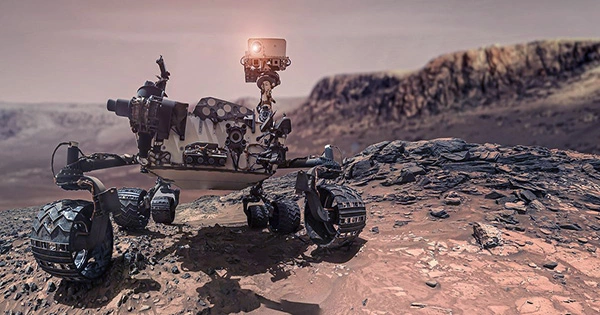When the Perseverance rover landed on the surface of Mars in 2020, kicking off a new age of exploration on the Red Planet, it sent a tremor across the world, and astronomy fans all over the world sighed a collective sigh of relief. Perseverance’s voyage did not begin with her arrival on a planet 54.6 million kilometers (33.9 million miles) distant. Professor Brian Cox spoke with us about what followed next, the subject of his new BBC film, Seven Days on Mars. We accompany Prof. Brian Cox as he travels to NASA’s Jet Propulsion Lab (JPL) for a behind-the-scenes look at mission control for Mars 2020, one of the most ambitious missions ever conducted, with the goal of determining if life ever existed on Mars.
We chatted with Cox about his experience tracking Perseverance as it makes its way towards an old river delta within Jezero Crater, attempting to beat the record for the most distance traveled on another planet in seven days. Cox accompanies the teams directing the Perseverance rover and the Ingenuity chopper as they attempt to trek 200 meters each day across the Jezero Crater during his week of exclusive access. The location is regarded to be a promising contender for revealing traces of previous life, but guiding a rover through the unforgiving terrain of a planet tens of millions of kilometres distant has its own set of obstacles.
Every day, NASA engineers send instructions to Perseverance, who then takes on the voyage on her own, following the instructions but also having the ability to handle problems if they arise. During that period, the JPL team must wait for another signal to see how Perseverance has advanced. These gaps allow Cox to do some exploring around JPL, including one especially memorable segment in which he visits the Mars Perseverance rover, which has never left Earth. This duplicate is very identical to the one on Mars, and it was able to demonstrate its redirection abilities when Cox offered himself as a target in a game of “interplanetary chicken.”
These rovers, on the other hand, stand on the shoulders of those who came before them, and are now so sophisticated that swerving a Professor of Particle Physics is simple, especially considering the fact that they’re driving at a cool 0.12 kilometers per hour. Around 3.8 billion years ago, a large lake flooded the Jezero Crater, and if Earth is to be believed, where there is water, there is frequently life. This is what the Mars 2020 mission and Perseverance are aiming for, and if they succeed, it might revolutionize our understanding of life in the cosmos.
















